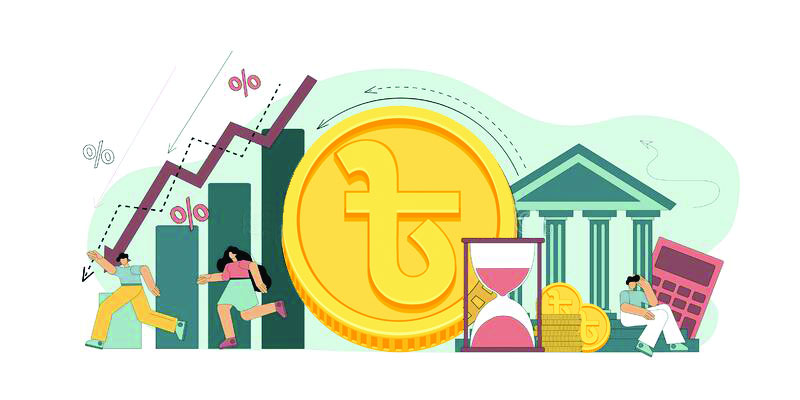Bank deposits increasing
Syed Nasir Hossain: The demand for liquidity in the banking sector is increasing while lending to the government. Besides, the nine-six limit on interest rates has also been lifted. In such a situation, the deposit interest rate is increasing. Banks in particular liquidity crisis are taking relatively high interest deposits. Some banks are charging up to 13.40 percent interest on deposits. As a result, cash in people’s hands has started returning to banks.
Private Padma Bank is now accepting term deposits at up to 10 percent interest. National Bank is offering double interest of 13.40 percent in five and a half years in Special Savings Scheme. Shariah-based Social Islami Bank offers 9.5 percent profit on deposits for three years. Some banks in crisis are paying higher interest than declared.
According to the data of Bangladesh Bank, the total deposits of the banking sector at the end of last October was Tk 16.36 lakh thousand crores. Compared to the same period last year, which is 9.80 percent higher.
According to the report of the central bank, deposits in banks were Tk 15 lakh 64 thousand 79 crores in May, which increased to Tk 15 lakh 95 thousand 254 crores in June. In the month of July, bank deposits increased to Tk 16 lakh 7 thousand 895 crore, which increased to Tk 16 lakh 18 thousand 508 crore in August, the amount of deposits increased to Tk 16 lakh 23 thousand 740 crore in the next month of September and Tk 16 lakh 36 thousand crore in October.
Bankers said that conscious people take into account the guarantee of getting the deposit back on time rather than the interest rate. That is why banks in crisis often do not get the desired deposits even though they offer high interest rates.
In this context, the former chairman of Association of Bankers Bangladesh (ABB), the association of private bank executives, Mohammad Nurul Amin, said that many people are depositing new money in banks now that the interest rate on deposits has increased. Distressed banks often charge interest on deposits in excess of the maximum lending limit. However, despite the high interest rate, many people do not want to keep deposits in these banks. Because of the fear that banks in crisis may face more risk of deposit. And maybe the bank can survive in the short term with the highest interest deposits. However, if the situation is not improved, it will suffer in the long term.
According to the data of Bangladesh Bank, as a result of increasing the interest rate on deposits, the amount of cash outside the bank decreased to Tk 2 lakh 66 thousand 354 crore last July. In August, it further decreased to Tk 2 lakh 58 thousand 356 crore. In September, the amount of money outside the banks fell to Tk 2 lakh 53 thousand 505 crores, which further decreased to Tk 2 lakh 45 thousand 943 crores in October. However, in May this year, cash outside the bank was Tk 2 lakh 55 thousand 829 crores. In the following month, June, it increased to Tk 2 lakh 91 thousand 913 crores. In other words, Tk 36,084 crore go out of the bank in one month.
Deposits in private Pubali Bank increased by 16 percent. In the last four months, deposits in this bank have increased by about Tk 4 thousand crore.
In this context, Managing Director of Pubali Bank, Mohammad Ali, said that deposits are increasing after the removal of the interest rate limit. People are now getting good interest by keeping money in the bank. As a result, the money kept outside the bank is returning to the bank. Banks are also increasing liquidity for lending.
Meanwhile, along with the increase in deposit interest rate, the loan interest rate has also increased. According to the data of the central bank, the interest rate has reached the highest level in the last 11 years. On Thursday, the average interest rate for borrowing or lending money overnight on call money rose to 9.14 percent. Sunday (December 24) was 9.16 percent. This is the highest interest rate on call money since 2012. That year the interest rate rose to 12.82 percent.
Bankers say that several banks are currently suffering from liquidity crisis due to the sudden rise in call money interest rates. Due to this, banks in crisis have to borrow call money from other banks to meet their daily needs. As demand for cash increases, interest rates rise. Besides, it’s the end of the year. So, banks have to finalize their balance sheets. It has created a demand for money in all banks.
Rare Israeli airstrike in Beirut kills Hezbollah commander and more than a dozen others
International Desk: Israel launched a rare airstrike that killed a senior Hezbollah milita…








